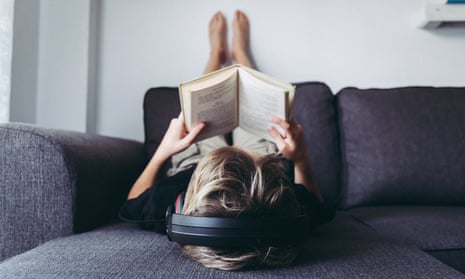Last year, Taylor Swift’s album Evermore featured two prominent nods to literature: the Rebecca-inspired Tolerate It, and Happiness, a breakup song which references F. Scott Fitzgerald’s The Great Gatsby.
After the news that Dolly Parton’s debut novel is to be released alongside her new album, it seems that fiction-inspired music is having its moment.
The scores to screen adaptions of books have enjoyed steady sales for years, with Wendy Carlos’ and Rachel Elkind’s soundtrack to The Shining (1980) due to receive a vinyl reissue later this month. And authors have been writing existing music into their work for decades: the late Sean Hughes’s 1997 novel The Detainees featured a revenge-seeking antiques dealer who becomes galvanised after being pushed into a Wedding Present mosh pit.
The Scottish micro label Bibliotapes has made literature-inspired music into an entire business. The label’s objective – asking musicians to compose new scores to classic novels – is an idea so simple it could almost be a happy accident. Stuart McLean, who runs it, suggests that’s the case.
“There was no grand plan. The label can be best summed up in a sentence: soundtracks for books on tape,” writes McLean.
“After I mentioned the idea of book soundtracks on Twitter, I was sent one for CS Lewis’s The Magician’s Nephew by Ioan Morris, who’s composed many of the Doctor Who soundtracks for Big Finish’s audio adaptions.”
Eight further soundtracks to novels have now been released by the label, including Audio Obscura’s pulsating score to Orwell’s Nineteen Eighty-Four, Rupert Lally’s brooding woodwind compositions for John Wyndham’s Day of the Triffids, and the electronica prepared by Twenty-Three Hanging Trees as an accompaniment to Kurt Vonnegut’s Cat’s Cradle (and since picked by Meadows Records).
Bibliotapes is releasing its soundtracks in cassette form only (McLean “never felt the point of hanging on to something long after the physical copies have sold”, and “cassettes are faster to make and distribute” than vinyl), but the artists themselves have kept their music available digitally via Bandcamp.
Bookish music fans have been keen to get hold of the soundtracks – all Bibliotapes’ physical releases have long sold out. Part of the cassettes’ attraction is the way they have been marketed as a kind of collector’s item: each soundtrack features original cover art designed in the vein of 60s Pelican paperbacks.
And some of the authors have been listening to the soundtracks of their books. Susan Cooper, author of the children’s folk-horror novel The Dark Is Rising, apparently sent some positive feedback to the composer Rob Colling, known as Handspan, after he released his album based on her novel.
There’s clearly an appetite for albums of this sort, and McLean isn’t the only one finding ways to combine music with literature. Booktrack, an audio production service, believes that “sound, beyond the spoken word, offers us an opportunity to deepen our experience of stories and the worlds that we build in our imaginations”, and offers bespoke compositions, as well as scores for Kenneth Branagh’s reading of Frankenstein, on its online store.
Meanwhile Frances Castle, an illustrator and curator of record label Clay Pipe, created an ongoing graphic novel series, Stagdale, to which she composes the score.
Like Bibliotapes, the emphasis is on physical releases – her story of displaced Londoners negotiating 1970s village life isn’t available digitally – but it’s hard to imagine a more fitting soundtrack than the twinkly instrumentals on the accompanying three-track download.
Perhaps Audible or Spotify will one day find a way to offer an audio experience that links music with novels (Audible has already dipped its toe in the water with its sound-designed “immersive” original dramas). For now though, it’s down to small labels such as Bibliotapes to fill this gap in the market. After a hiatus of more than a year (“caused by the book-size cases the cassettes come in running out at the supplier”), Bibliotapes is back: this week it released a soundtrack for the Strugatsky brothers’ Roadside Picnic. Whether the label’s concept will continue to gain traction (could publishers and literary agents soon be selling music adaptation rights to novels in the same way that screen rights are currently sold?) remains to be seen.

Comments (…)
Sign in or create your Guardian account to join the discussion